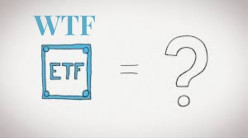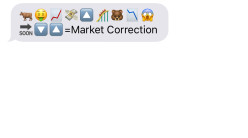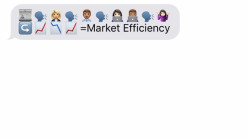You may have heard the term 401K before and probably thought wait I can't run that far, or $401,000, some of you may even know that it is related to your retirement fund or specifically an IRA (Individual Retirement Account). You get bombarded with packets of what an IRA is, and you hear from your parents invest in your retirement but you really don't know any of the rules or types of IRA"s out there.
Basically, think of an IRA as a squirrel putting nuts away for the winter, but unlike with nuts you have something called compound interest on your side that will consistently grow, sorry squirrel your nuts wont multiply by themselves, and one of the major benefits of an IRA, is the tax savings. The goal is to lower your Annual Gross Income (amount of money you make a year) which can alter the amount of taxes you pay by putting you into a different tax bracket. This is specific to the individual so please reach out if you would like to learn more about your needs specifically.
Now before we get into it, remember anyone can have an IRA, you do not have to be part of a company’s plan.
Lets start with the basics. IRA stands for Individual Retirement Account and there are three main types of IRA’s, Traditional, Roth, and Rollover, we will mainly focus on Traditional and Roth as Rollover is the least important in the category until it comes a time where you leave your company or want to make withdrawals.
Traditional: This is the most basic and typical IRA. This is a tax deferred plan; meaning that all money that goes inside of it is PRE tax. Downside is if you take any money out before you turn 59 and 1/2 then you will most likely have to pay an additional 10% in penalties along with your regular income tax. *Most likely your company offers and matches this one
*Restrictions
· No contribution after 701/2
· Max $18,000/year
Roth: Unlike traditional IRA that is tax deferred, Roth is post tax, which simply means that all income after tax is contributed to your Roth IRA. But here is what makes a Roth IRA pretty awesome. Any growth inside the Roth is tax-free once you withdraw at your retirement age. Helps you avoid paying higher taxes on growth once you reach retirement, for example you put $5,000 in today, and in 10 years it is $20,000 when you take it out you pay NOTHING, yes nothing on the appreciation.
*Restrictions
· Ineligible at certain incomes unless employer offers ($105,000)
· Max 5,500/year under 50, $6,500/year over 50
Rollover: This is often done in two scenarios, when you leave a company or when you are ready to take distribution from your 401K after age 70
So remember contribute to your IRA not just for retirement but to take advantages of the tax benefits today. #IRAALLDAYEVERYDAY












